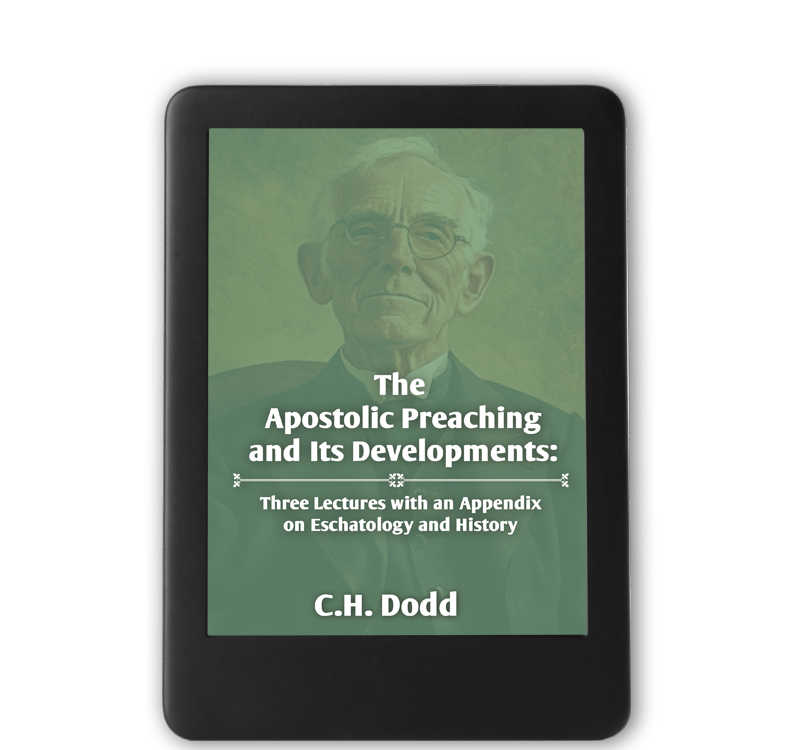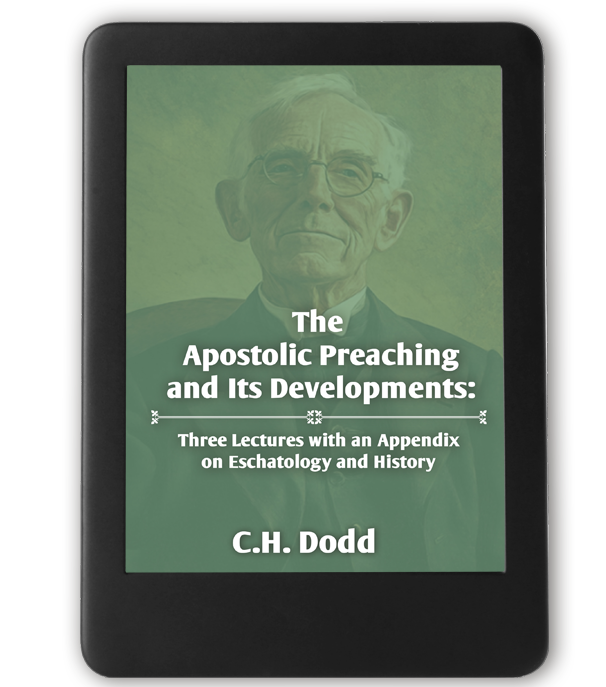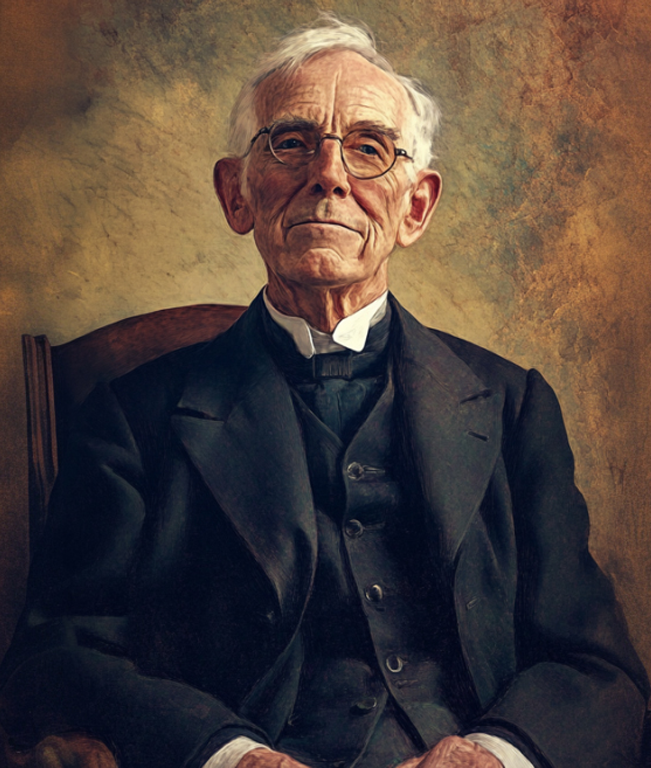
The Apostolic Preaching and Its Developments:
Three Lectures with an Appendix on Eschatology and History
by C.H. Dodd
What did the earliest Christians actually preach—
and how did that message evolve?
The Apostolic Preaching and Its Developments
Through three incisive lectures, C.H. Dodd reconstructs the kerygma—the essential proclamation of the early church—and tracks how it shaped the development of Christian theology. Dodd is known for promoting "realized eschatology," the belief that Jesus' references to the kingdom of God referred to a present reality rather than a future apocalypse.
Also included is an insightful appendix on eschatology and history, where Dodd addresses the tension between apocalyptic expectation and historical unfolding—a debate that still resonates today.
Whether you're a theologian, student, or curious reader, this short book is an important early look at what has become known as The New Perspective on Paul.


ABOUT C.H. DODD
Scholar and Theologian
Charles Harold Dodd (1884–1973) was a Welsh New Testament scholar and theologian best known for his influential work on realized eschatology—the idea that the kingdom of God is a present reality rather than solely a future hope. Educated at Oxford and later a professor at the University of Manchester and Cambridge, Dodd brought a rigorous historical and literary approach to biblical studies. His major works, including The Parables of the Kingdom and The Apostolic Preaching and Its Developments, reshaped 20th-century understanding of early Christian preaching and theology.
Dodd played a key role in making biblical scholarship more accessible to English-speaking audiences, notably as the general director of the New English Bible translation. He combined scholarly depth with clarity of thought, bridging academic and pastoral concerns. His legacy continues to shape both academic theology and the practical preaching of the New Testament.